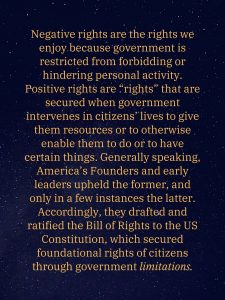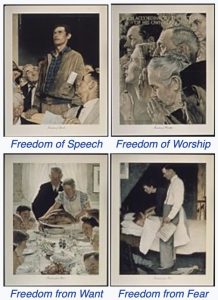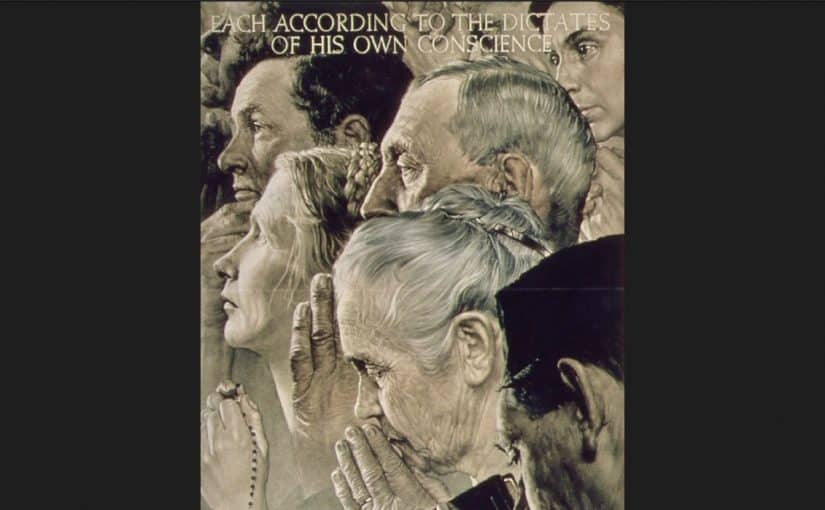Negative rights are the rights we enjoy because government is restricted from forbidding or hindering personal activity. Positive rights are “rights” that are secured when government intervenes in citizens’ lives to give them resources or to otherwise enable them to do or to have certain things. Generally speaking, America’s Founders and early leaders upheld the former, and in only a few instances the latter (such as an individual’s right to a trial by jury). Accordingly, they drafted and ratified the Bill of Rights to the US Constitution, which secured foundational rights of citizens through government limitations.

A PDF file of the above graphic is available here.

The first two of President Franklin Roosevelt’s “Four Freedoms” —
-
-
- freedom of speech and expression and
- freedom of worship,
-
are negative rights, like those upheld in the Declaration of Independence and guaranteed in the US Constitution.
The last two —
-
-
- freedom from want and
- freedom from fear
-
are positive rights because the government would have to engineer circumstances to try to make them realities — impossible feats in the vast majority of situations.
This page is part of a larger article.
Note: The insight that the first two of the Four Freedoms are qualitatively different from the last two was developing in my mind when I first heard Chuck Colson express it and explain it. I have searched extensively for the source in which he wrote or spoke about this but have been unable to locate it.
Copyright © 2020 by B. Nathaniel Sullivan. All rights reserved.
